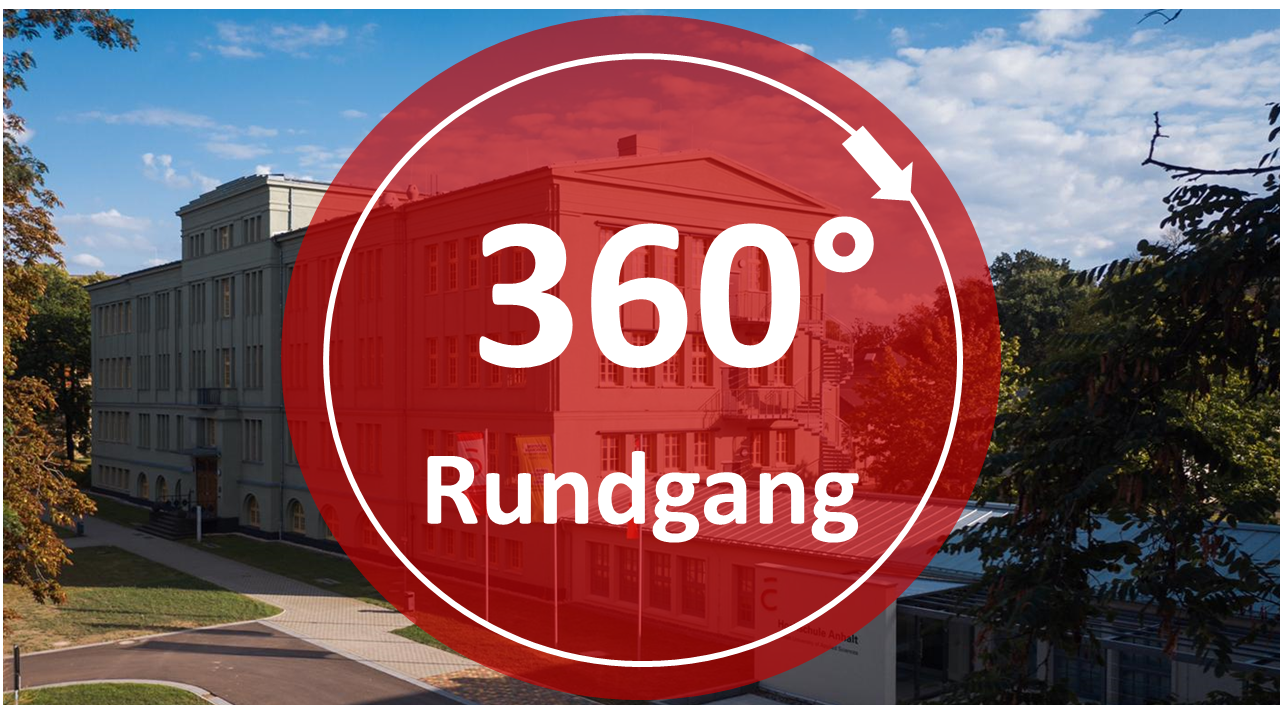Biotechnology (Master's degree, full-time, cooperative)
-
What is Biotechnology?
Biotechnology involves the utilization of the metabolic capabilities of naturally occurring or genetically modified microorganisms (bacteria, yeasts, etc.) and cells (plant and animal) to obtain specific products which are of a marketable quality and scale.
In addition to the organisms, the focus is primarily on the technical realization of the metabolic processes in bioreactors and biotechnical plants. This focus distinguishes degree programs in biotechnology from those in biology!
For this reason, companies specifically look for biotechnologists and prefer hiring them.
The master's degree program builds on the bachelor's degree program in Biotechnology. Students will deepen and extend their previously acquired knowledge.
-
What does the degree program entail?
The program intensifies and broadens the knowledge acquired in the bachelor's degree program in three areas:
mathematical and scientific knowledge
technological knowledge
cross-technology knowledge.
The master's degree program focuses more on project-based knowledge transfer than traditional knowledge transfer. During the degree program, students are required to work each semester in small groups on a project based on current research topics of the department. Students will acquire teamwork skills and leadership qualities in these group projects.
The master's degree program has therefore been accredited as research oriented.
-
What are my career opportunities?
Highly qualified specialists have particularly good career prospects in biotechnology, in pharmaceutical biotechnology, in biomedicine and in the agricultural and food sector.
Due to the research orientation of the master's degree program, careers in research and development in large companies or institutes, as well as in research management, are possible.
The master's degree program enables students to take on management positions in the above-mentioned areas and also entitles them to continue their academic career with a doctorate.
Careers in the German higher public service in public authorities are possible.
The right preparation
-
Recognition of coursework from a first degree prog
Previous academic achievements from a first degree program and/or after a change of degree program or university or following studies abroad, and thus achievements which were completed at another university, may be credited on application post enrollment.
The Examinations Committee of the Department is responsible for this in coordination with the respective degree program advisor / lecturers.
-
Important knowledge acquired during the bachelor's
For a successful master's degree program, the following requirements are desirable:
Basic scientific knowledge, especially in microbiology, molecular genetics and genetic engineering, cell culture technology, biochemistry, and enzymology.
Basic knowledge in engineering and bioprocess engineering as well as bioapparatus engineering.
Basic knowledge of bioanalysis and instrumental analysis.
-
Important information for career changers
Individual adaptation and bridging semesters are offered for career changers from other life sciences programs (such as Pharmaceutical Engineering, Food Technology, Agriculture, etc.).
The degree program advisor assesses applications and advises students about their knowledge deficits related to the master's degree program in Biotechnology. Based on this discussion, the advisor and student determine required modules from the bachelor's degree and how they will be scheduled.
-
University Information Day
In June of each year, the Köthen Campus hosts University Information Day.
Anyone interested in studying at Anhalt University is invited to get to know the University, our lecturers and students, as well as our degree programs. You can get a personal impression of our facilities and the campus and receive individual advise.The date of the next University Information Day in Köthen as well as at Dessau Campus and Bernburg Campus can be found here.
Program sequence & program contents
-
1st semester
Höhere Mathematik
Lectures and practical coursesIndustrial Marketing
Lectures and practical coursesSpezielle Biochemie von Pflanzen und Mikroorganismen
Lectures and lab/pool classesSpezielle gentechnische Verfahren
Practical coursesProjektarbeit I
The project can either be a research paper (theoretical) or a lab project (practical).Wahlpflichtmodul I
-
2nd semester
Rührtechnik
Lectures and practical coursesBiotechnologie phototropher Organismen
Lectures and lab/pool classesEnergiebiotechnologie
Lectures and lab/pool classesBioreaktormodellierung
Practical coursesProjektarbeit II
The project can either be a research paper (theoretical) or a lab project (practical).Wahlpflichtmodul II
-
3rd semester
Proteinbiotechnologie
Practical coursesKohlenhydrat- und Lipid-Biotechnologie
Lectures and lab/pool classesBioprozessautomatisierung
Practical coursesProzessmodellierung und Simulation
Lectures, practical courses, and lab/pool classesProjektarbeit III
The project can either be a research paper (theoretical) or a lab project (practical).Wahlpflichtmodul III



